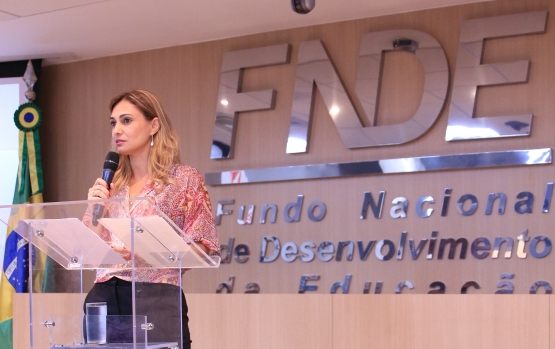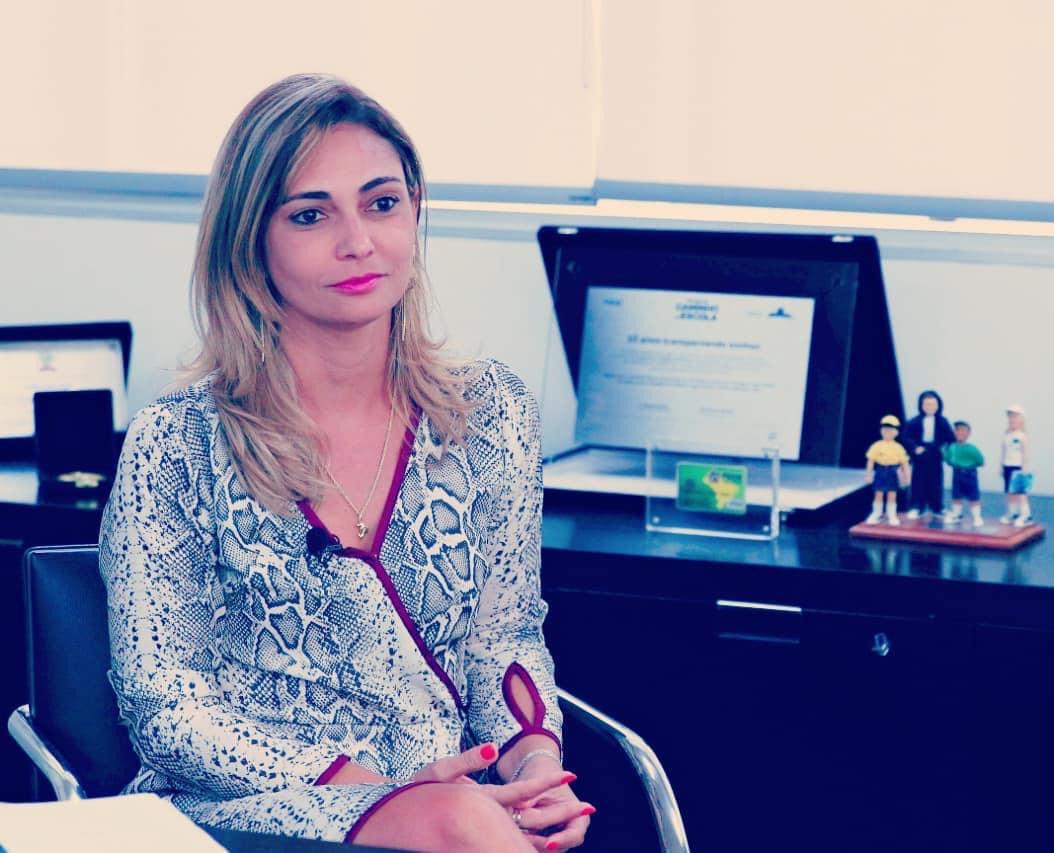According to Karine Santos, Secretary of Specialized Education Modalities of the Ministry of Education of Brazil, the organization of countries in a network is a technical and political instrument to improve regional articulation and strengthen school feeding programs in each country.
Paulo Beraldo
Joint work and cooperation are essential to deepen dialogue in school feeding in Latin American, Caribbean and in the world, says Karine Silva dos Santos, who coordinated the National Program for School Feeding – PNAE of Brazil, executed by the National Fund for Educational Development (FNDE/MEC).
Karine, who is now Secretary of Specialized Education Modalities, comments that, for Brazil, it is valuable to maintain an increasingly intense and in-depth articulation in school feeding. “The idea is to start with the countries of the region and later transform the RAES Network into something global, strengthening this structured policy that deserves to be recognized, disseminated and implemented to guarantee food for students”, she commented. “We know that many nations still need a school feeding policy, even some developed countries.” Below is the full interview.
What is the importance of having a network of countries increasingly consolidated and articulated in school feeding, especially in this challenging moment that the pandemic imposes?
The consolidation of the Sustainable School Feeding Network (RAES, for its acronym in Spanish) strengthens a space in which we can guarantee dialogue, exchange of experiences, articulation and a demonstration of how school feeding programs are advancing and being consolidated in the internal policies of the countries .
Our goal is to guarantee the human right to adequate and healthy food. For this, we need strategies that lead us to give visibility to the actions that provide the guarantee of this right. From my perspective, it is important to give visibility so that the policy can be consolidated and then reach the objective of guaranteeing school meals for the greatest number of students.

Why does Brazil is focusing on the implementation and strengthening the RAES?
For a few decades, we have been living in a globalized world and this trend is getting stronger. In the pandemic, this became even more evident, with the possibility of maintaining international articulation even without having physical contact with representatives from other countries. The most important thing for us is to be able to show that sustainable school feeding policies can guarantee several benefits both for students, who are direct beneficiaries of the policies, and for secondary actors. And here I am talking about farmers, nutritionists and the school community as a whole.
I’d like to make a specific mention of family farmers, who can, through public procurement, sell their products to the government. This favors local income and economic development in that region. In addition to supply, there is another axis of the policy, which is to guarantee the formation of healthier eating habits. With food and nutrition education actions, we work for the benefit of students, the school community, the teachers, the coordinators, nutritionists, the cooks and the families. So, with RAES Network, we are able to work on major intersectoral axes, strengthening and driving this movement of consolidation of school feeding at a national and international level.
What is the importance of making this platform available in three languages – Portuguese, Spanish and English?
For the National Fund for Educational Development (FNDE), the opportunity to share with our colleagues from other countries our experiences using as many languages as possible is very valuable. The moment of the pandemic and the agility with which we deal with it, in a new, challenging and difficult scenario, showed that the exchange of experiences is a viable and enriching solution for all involved. And working with other languages allows this information to reach more people faster. So, for the Government of Brazil, it is very important, valuable and interesting to keep this dialogue more and more intense and in-depth.
In your opinion, what will be the best results brought by this platform over time?
The platform is a technical and political instrument to improve our regional and, in the future, global articulation. The idea is to start with the countries of the region and then transform RAES into something global, strengthening this structured policy that deserves to be recognized, disseminated and implemented by several countries. We know that many nations still need a school feeding policy, even some developed countries.
So, RAES has in itself the objective of articulation and the platform is the instrument that allows this. It is essential to have a space to disseminate our materials, content, experiences, the challenges in the face of various scenarios, such as the pandemic, which no one expected. And we also have a space to receive and disseminate these countries’ experiences. The platform is a tool for maintaining a continuous and permanent dialogue to maintain international articulation in school feeding. My expectation is that the RAES will be widely disseminated, that countries will understand that this Network is a promoter of sustainable food programs and that it can serve as a tool to guarantee access to food for as many students as possible.



